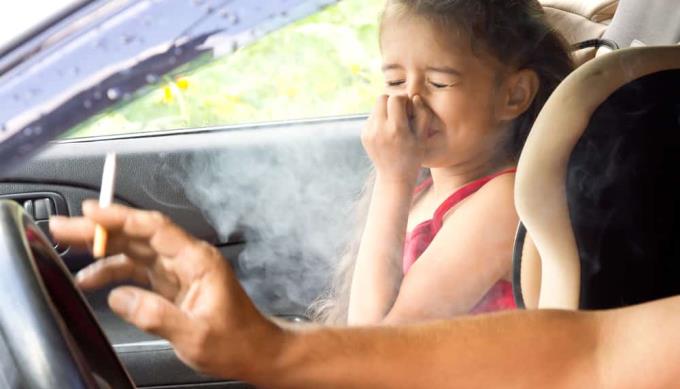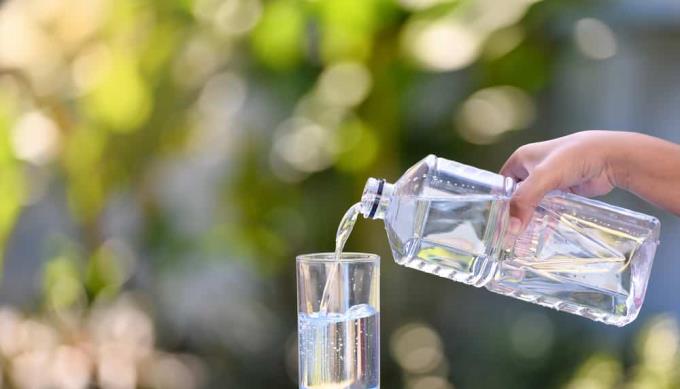Ways to determine an infants caloric needs

Learn how to determine your baby’s caloric needs, including the calories in breast milk and formula, to ensure your infant gets the right nutrition for healthy growth.
The bad breath of the baby is the cause of the lack of confidence in communicating and playing with friends. So how to overcome this situation? Let aFamilyToday Health learn about this issue.
She has an extremely adorable face, but her breath smells bad. This will make your baby feel less confident and bring a lot of trouble for the baby. Bad breath brings a lot of trouble for everyone, especially a child.
In young children, this condition is not uncommon. The main reason is due to improper dental care for the baby . However, in addition to this cause, there are also a few other causes that you should be aware of. This is not a serious illness, so don't worry. Follow the sharing below to know more about some of the causes of bad breath in children and how to handle this problem.
This is the leading cause of bad breath in your baby. If your baby has a stuffy nose and has to breathe through the mouth, it will give the bacteria in the mouth a chance to grow, leading to bad breath. Saliva helps cleanse and moisten the oral cavity, if there is not enough saliva, dead cells will accumulate and lead to bad breath. Increased bacteria in the mouth, lack of oxygen and saliva, all of which cause bad breath. In addition, the baby's habits such as sucking hands, sucking toys ... also make the baby prone to dry mouth, promoting the development of bacteria.

Poor oral hygiene, not brushing your teeth properly will cause residues of food residue to accumulate in the teeth without going away for a long time, leading to bad breath. Normal bacteria that live in your baby's mouth interact with those foods and begin to produce an unpleasant odor, damaging the baby's enamel.
Young children often stuff small objects such as beans, toys ... into their nose. This damages the nasal mucosa and superinfection causing bad breath in the baby's breath.
Diseases of the gum, tooth abscess, plaque accumulation, tooth decay ... are also the causes of the baby's breath odor.

You feed your baby foods with a strong smell such as onions, garlic, cheese ... also make their breath smell bad.
Illnesses like tonsillitis, sinusitis, gastroesophageal reflux disease (GERD) or seasonal allergies also make your baby's breath smell bad. In addition, illnesses such as gingivitis, diabetes and acute sinusitis are also causes of bad breath in young children. Urinary tract infections are also a cause of cold sores, red gums and bad breath.
There are some toothpastes that contain harmful ingredients that affect your baby's teeth. Whipped creams containing SLS (sodium lauryl sulfate) often damage oral tissues and promote bacterial growth.

Sometimes medicine is the cause of a baby's breath odor. The reason is that the breakdown of chemicals in the drug leads to bad breath.
The removal of the arch tonsil is usually caused by an infected or swollen tonsil, an infection of the ear or sinuses. After surgery, bad breath is common and usually goes away within a few weeks.
Bad breath is often caused by these reasons. However, bad breath after waking up is quite common. The cause of this problem is that when sleeping, saliva is not produced enough, causing bacteria to accumulate, leading to bad breath in the morning.
Note:
Children in kindergarten age are often prone to bad breath because when they go to school, they come into contact with other children and they are susceptible to respiratory infections. These bacteria often cause a runny nose, stuffy nose and sore throat.
To prevent bad breath, dental health care is first and foremost. In addition, the regular production of saliva also helps reduce the growth of bacteria. Here are some things you can try to treat your baby's bad breath:
• Teach your baby the right way to brush teeth to fight the growth of bacteria. Brush your teeth after each meal with a soft toothbrush to remove leftovers from your teeth.
• Lift your baby's tongue with cleaning tools.
• Give baby plenty of fluids to increase saliva production.

• Use toothpaste that does not contain abrasives.
• Remove leftovers from teeth with flossing.
• Change your toothbrush every 3 months to increase the oral cleaning effect.
• Wash your hands often with soap.
• If your baby has a habit of sucking fingers or sucking toys, wash toys and other objects often.
• Disinfect pacifiers if you use pacifiers .
Do not let young children use mouthwash because they will have difficulty getting rid of the mouthwash. Besides, some mouthwashes contain only alcohol. Not only does it not have a cleaning effect, but also makes the baby's breath smell bad because these mouthwash can make your baby dry.
You should regularly bring your baby to the dentist for dental checkups. If your child has bad breath, you should take him to the dentist to be checked. Dental care and dental treatment are ideal ways to stop bad breath problems.
If bad breath is not caused by dental problems, you should take your baby to the doctor to see if he or she has any underlying medical problems. Because bad breath is not only caused by dental diseases but also caused by a number of other diseases. If you feel your baby's breath smells abnormally or he feels uncomfortable, take him or her to the doctor right away.
Some flu viruses can cause your baby to have sore throat, fever, loss of appetite and bad breath. When the baby is over, the bad breath will also disappear.
Proper oral care helps prevent bad breath in young children. Not only that, but also teaching children about oral care also brings many benefits. However, this does take some patience.

If your baby does not have a dental problem and his breath still smells, you need to take him or her to the doctor. Here are some diseases that often cause bad breath:
• Diabetes or ingestion of acetone, alcohol, phenol or salicylate - The smell of acetone
• Urinary tract infection or kidney failure - Ammonia odor
• Cat odor syndrome - The smell of cat urine
• Gingivitis, sinusitis, plaque, abscesses, tooth decay - Stench
• Arsenic poisoning, phosphorus, organic phosphate pesticides - Garlic odor
• Typhoid fever - The smell of toast
• Syndrome of sweaty feet - The smell of sweat
Signs of sinusitis are cold, yellow bleeding from the nose, exhaustion, cough ... When sinusitis, the mucus will accumulate in the sinuses, then drip down the throat and deposited in the back of the tongue. This causes the bacteria in the mouth to interact with this mucus, causing bad breath.
When the tonsils swell, mucus and food build up in the back cavities of the tonsils, leading to bad breath.
Through the above sharing, you must have had some more useful information about the cause of your baby's breathing heavy. Please encourage your baby to take good oral care to keep his breath fresh all day long.
Learn how to determine your baby’s caloric needs, including the calories in breast milk and formula, to ensure your infant gets the right nutrition for healthy growth.
Discover the top 5 smartest dog breeds in the world, including Border Collie, Poodle, German Shepherd, Golden Retriever, and Doberman Pinscher. Learn about their unique traits and why they are considered the most intelligent dogs.
Discover 7 nutritious and delicious ways to cook egg porridge for babies, including recipes with cheese, pumpkin, tomato, and more. Learn how to prepare baby-friendly egg porridge with our expert tips.
After a series of medical measures they obtained a complete human vascular system profile.
Watermelon is one of the fruits that many people love, not only cheap but also delicious, nutritious and refreshing in the summer. To get delicious watermelon pieces, show off your housewives, your artistic talents to cut beautiful pieces of watermelon.
aFamilyToday Health - The digestive system and body in each baby is different. Parents need to recognize notes to deal with when babies have a food allergy!
Babies need many factors for perfect development. aFamilyToday Health shares with parents things to keep in mind when babies are 8 weeks old so that parents can take care of their babies the best!
Babies need many factors for perfect development. aFamilyToday Health shares with parents things to keep in mind when babies are 18 weeks so that parents can take care of their babies the best!
Babies need many factors for perfect development. aFamilyToday Health shares with parents things to keep in mind when babies are 28 weeks old so that parents can take care of their babies the best!
Babies need many factors for perfect development. aFamilyToday Health shares with parents things to keep in mind when babies are 32 weeks old so that parents can take care of their babies the best!








